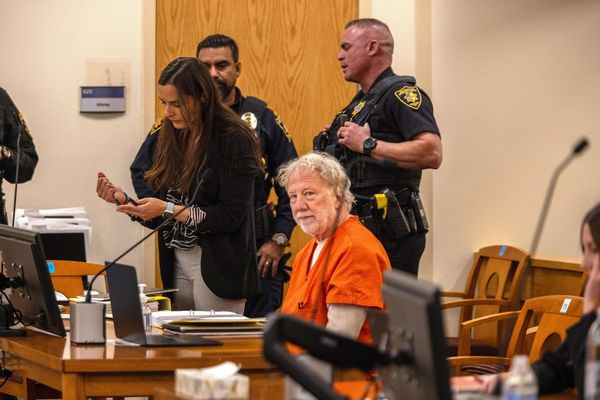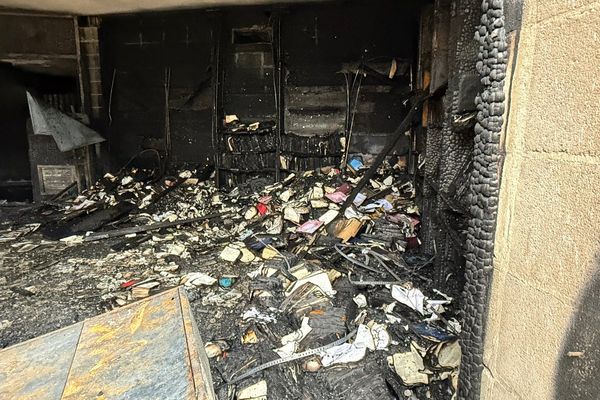DETROIT — A federal judge has approved settlement agreements between four Flint children and a private engineering company in cases related to the Flint water crisis, likely marking the first time a child has received financial compensation in the man-made disaster.
U.S. District Court Judge Judith Levy in the Eastern District of Michigan issued the written order Tuesday, saying she had determined the settlements were in the best interest of the children, who were all under the age of 6 when a botched water supply switch sent lead-tainted water flowing through Flint's pipes nearly a decade ago.
"The Court has carefully evaluated the settlement agreement," Levy wrote in the motion. "... (The) Unopposed Motion to Approve Infant Plaintiff's Settlement is fair and in the best interests of (the child)."
Attorneys for the kids filed the settlement agreements with the Texas-based engineering firm Lockwood, Andrews & Newnam, or LAN, on Dec. 9. The agreements were filed under seal due to the age of the plaintiffs and will have to be redacted before they are filed publicly on the docket.
According to court records related to the settlement, each of the four children reached a separate agreement with the company. The amount of money the children will receive has not been disclosed.
In their lawsuits, the kids accuse LAN of professional negligence for its work with the city's water system during the crisis, saying the company failed to properly report the dangers of the improperly treated water source, which corroded the city's pipes and exposed thousands to lead. Lead is a neurotoxin that can have harmful effects on physical, developmental and neurological health, particularly in children.
"The Infant Plaintiff is one among thousands who lived in Flint during the Flint Water Crisis. Many, if not most, have either filed a lawsuit related to the crisis, or still could," the plaintiffs' attorney Corey Stern wrote in the filings.
At the moment, Stern wrote that he is "unaware of a single child who has received any monetary compensation flowing from the crisis."
LAN has maintained that the company bears no responsibility for the water crisis, and that it had no control in the water treatment decisions, which were made by state regulators and city officials.
While the court filings do not specify which company the kids struck a deal with, the firm's defense attorney has confirmed LAN has agreed to settle.
"There was no finding of fault against LAN in the first bellwether trial, and to avoid the significant costs, expenses and time of another protracted trial, the parties were able to reach a mutually agreeable resolution, subject to court approval," the company's lead defense counsel Wayne B. Mason said in a statement.
The four plaintiffs involved in the settlement approval are among thousands of kids who have filed individual lawsuits against LAN, and another engineering company, Veolia North America, over their work in Flint during the crisis. All of the suits have been consolidated in Michigan's Eastern District where they will be tried incrementally over the next several years. The cases are overseen by Levy.
The four settlement agreements approved this week do not have a direct impact on the other pending cases.
"This is an individual settlement, for an individual child ... who went through an exhaustive trial," Stern wrote in one of the filings. The New York-based attorney represents thousands of Flint children and serves as the co-liaison counsel for the consolidated individual cases.
Earlier this year, the same four children were the plaintiffs in a lengthy trial against LAN and another engineering company, Veolia North America. It was the first Flint water crisis-related case to make it to a jury and the first trial involving claims against the two defendants. With thousands of lawsuits pending against the companies, it was also considered a bellwether trial. Bellwethers are used to help both sides gauge their theories and arguments and to set the course for the remaining pool of cases involving similar plaintiffs with claims against the same defendants.
The first bellwether trial opened in February and ended in August with a hung jury. A retrial against both LAN and Veolia was set to get underway in just a few weeks, but the settlement agreements have shaken up the schedule.
Amid settlement talks in November, the trial dates were adjourned. With the settlement between the first bellwether plaintiffs and LAN now approved, their case against the company is resolved and will no longer proceed to trial. The remaining cases against the Texas company, however, will proceed as planned.
The first bellwether plaintiffs' cases against Veolia are still expected to go to trial, but will be rescheduled for a later date.
The next bellwether trial featuring both LAN and Veolia as defendants is set to be held in 2024. That case will involve a new group of Flint children.
A separate class-action lawsuit brought by Flint residents against LAN and Veolia is scheduled to go to trial in October 2023. That case is also overseen by Levy with attorneys Theodore Leopold and Michael Pitt serving as co-lead counsel.
The plaintiffs' attorney and LAN's defense counsel both declined to disclose any details of the settlement, but records cited in the motions and witness testimony from the trial provide some insight into how the monetary awards may have been determined.
A list of exhibits filed as part of the sealed settlement motion references a report from forensic economist Gary Crakes, an expert witness for the plaintiffs who calculated the potential financial losses the children could incur over the course of their lifetime due to the water crisis.
In court testimony, Crakes projected potential future loss of earnings for each child, which ranged from $2.6 million to $8.4 million. His calculation was based on the average lifetime earnings for someone the same age with a bachelor's or master's degree, compared to the amount the child could now be expected to earn as a result of their injuries sustained from the toxic water.
Future economic losses are just one aspect up for consideration for damages in the Flint cases. Other considerations include any physical, mental and emotional suffering from the time their injury occurred until the time of a verdict, as well as any future suffering the children may experience.
In addition to LAN and Veolia, the Flint plaintiffs have also filed individual and class-action lawsuits against a number of other public and private entities. In 2020, the individual and class plaintiffs reached a $600 million joint settlement with the state of Michigan. The city of Flint and Rowe Engineering also joined the settlement, contributing an additional $20 million and $1.25 million respectively.
The record-breaking settlement was announced two years ago and more than 50,000 people have signed on as claimants, but to date not a single person has received any payouts from the agreement. The wait is due in part to a complex claims process being handled by a court-appointed special master and objections from outside attorneys that are pending in federal appeals court.







